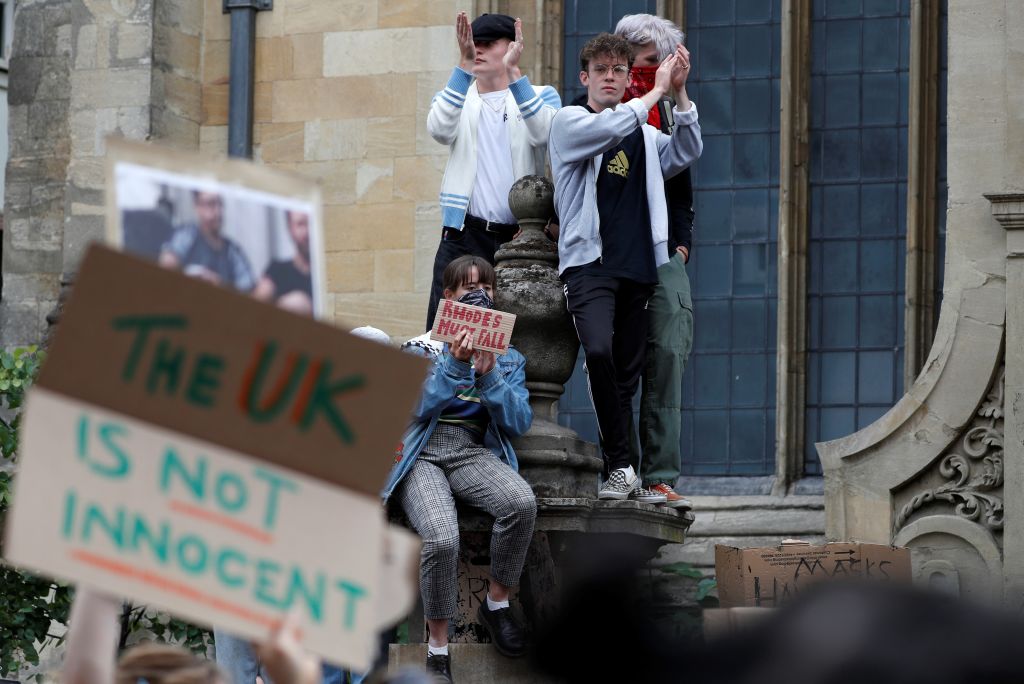There is a spectre haunting British universities: the spectre of institutional racism. ‘There is a lot of evidence that points towards universities perpetuating systemic racism, being institutionally racist,’ the University of East Anglia’s vice-chancellor, David Richardson, told an upcoming BBC Three documentary ‘Is Uni Racist?’. Viewers are likely to be left in no doubt that the answer to that question is ‘Yes’. Two people I know appeared in it, and it was moving to hear them share their experiences. Yet the reality is that for most black students there has never been a better time to study at a university in Britain.
Of course, that doesn’t mean there aren’t still problems. The programme follows four black students and looks into how leading universities deal with complaints of racism. Numerous failures are highlighted and there is much to back Richardson up in his damning assessment.
One student, Zac Adan, found himself pinned against the wall by security guards at the University of Manchester last year. He complained of racial profiling: the guards had asked for his ID and Adan claimed he was accused of ‘looking like a drug dealer’. He believed the university’s initial response was insufficient, until a video of the incident went viral. The vice-chancellor leaped into action (and onto Newsnight), apologising profusely. The guards involved were suspended and an investigation launched.
Oxford is in-hoc to a mentality that elevates theory over evidence
Natasha Chilambo’s story was equally shocking. She complained about a student play at Cardiff University which featured a student in blackface and a faux penis labelled ‘a dark chocolate slab’. Cardiff’s cack-handed response led to Natasha dropping out.
Worryingly, some universities appear unwilling to engage with racism allegations until they become newsworthy. Their response usually amounts to opaque acts of virtue-signalling designed more to cover vice-chancellors than comfort students. It mirrors the findings of a 2019 report suggesting that nearly one in ten students said they had faced some kind of racial harassment. Only a third bothered report it to their university. No wonder black students might think the system is rigged against them.
Yet while the experience of some students is horrifying, the charge that British universities are institutionally racist cannot go unquestioned. Britain’s universities teach more than two million students a year. Those universities surveyed by the Equality and Human Rights Commission reported that only around 0.01 per cent of students (559) had made complaints about racial harassment over a three-and-a-half year period. Even one such incident is too many. But these numbers do not support an accusation of institutional racism.
So why does this differ so starkly to the alarming picture painted by the documentary? It’s hard not to think the ‘framework of critical race theory’, mentioned in a recent Universities UK report on tackling racism, might be at least partly to blame.
All too often, CRT suggests that racism is omnipresent and unthinkingly perpetuated by white people. ‘Microaggressions’ allow for actions and comments to be considered racist if the victim thinks so, no matter the perpetrator’s intention. This could include everything from congratulations on a job well done to a comment about someone’s hair. Suddenly, racism becomes all-pervasive.
I have seen CRT in action at my own university, Oxford. Both Somerville and St Hugh’s have recently lectured students on their apparent unthinking racism. Somerville’s students were asked to take an unconscious bias test, and initially told they must score full marks. At St Hugh’s, a workshop informed students the ubiquity of racism meant simply not being racist was not good enough.
Not only does this frighten students and poison relations, but it obscures the actual success made in aiding black and ethnic minority students, who receive more than a quarter of university offers and a fifth of those at Oxbridge. This is a larger proportion than white working-class applicants. The support available for students of all backgrounds – from bursaries to mental health professionals – is better than ever. Yet, like so many other universities, Oxford is in-hoc to a mentality that elevates theory over evidence. This is disastrous for academic inquiry, as shown by the case of theologian Nigel Biggar. His efforts to produce a balanced picture of imperialism led to efforts to remove him for questioning a plank of CRT orthodoxy.
Some would say it is not my place to comment on this. As a white, privately educated, Tory-voting, student at Christ Church, I am hardly the poster child of the underprivileged. But I have as much of a right to attend a university free from dogma as anyone else. It horrifies me that black applicants might be put off university by documentaries and comments like Prof Richardson’s. To misquote Marx again, the first thing needed for the happiness of British students is the abolition of Critical Race Theory.







Comments